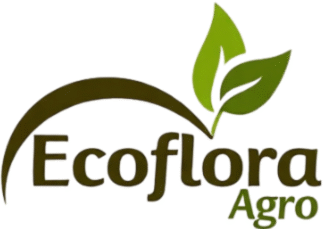In the face of climate change, soil degradation, and rising consumer demand for chemical-free food, the agricultural industry is undergoing a profound transformation. Eco-friendly farming, also known as sustainable or regenerative agriculture, is no longer a fringe movement—it’s the future of farming. At the forefront of this shift are innovative companies like Ecoflora Agro, which are bridging traditional wisdom with cutting-edge green technologies to ensure safer, cleaner, and more profitable farming systems.
This article explores the pivotal role Ecoflora Agro plays in promoting eco-friendly farming, its core principles, technologies, sourcing practices, and the broader impact it has on farmers and the environment.
What is Eco-Friendly Farming?
Eco-friendly farming involves agricultural practices that are ecologically sustainable, economically viable, and socially responsible. The focus is on minimizing environmental harm while enhancing biodiversity, soil health, and natural pest control.
Key Principles of Eco-Friendly Farming:
- Reduced chemical input: Prioritizing botanical or organic substitutes over synthetic pesticides and fertilizers.
- Soil conservation: Implementing no-till farming, crop rotation, and composting.
- Biodiversity: Encouraging the coexistence of multiple crop species to build natural resistance to pests and diseases.
- Water efficiency: Adopting drip irrigation and rainwater harvesting systems.
- Carbon sequestration: Planting cover crops and agroforestry to capture atmospheric carbon.
Ecoflora Agro: Leading the Green Revolution in Agriculture
Ecoflora Agro is a pioneering agro-biotech firm that champions botanical-based crop protection and plant health solutions. With a deep commitment to sustainability, the company sources its raw materials from indigenous plants, supports rural communities, and empowers farmers with safe, science-backed alternatives.
Core Contributions of Ecoflora Agro:
- Botanical Pesticide Production
- Ecoflora Agro formulates plant-based fungicides and biopesticides using natural extracts such as neem, pyrethrum, and garlic.
- These products offer comparable effectiveness to synthetic chemicals, minus the environmental footprint.
- Ethnobotanical Research
- The company collaborates with ethnobotanists and local communities to identify potent indigenous plant species.
- This ensures both scientific credibility and the preservation of traditional knowledge systems.
- Training and Farmer Education
- Ecoflora Agro runs community outreach programs and workshops to train farmers in sustainable agricultural practices.
- Topics include composting, integrated pest management, and biofertilizer usage.
- Eco-Certified Supply Chains
- The company ensures traceability of its botanical ingredients, sourcing from organically managed zones and fair-trade networks.
Sourcing and Innovation: How Ecoflora Finds Its Green Gold
Sourcing high-quality, sustainable botanical inputs is key to Ecoflora Agro’s value chain. Here’s how the company ensures quality and sustainability:
| Sourcing Strategy | Description |
|---|---|
| Indigenous Plant Use | Focus on plants with a long history of traditional agricultural use. |
| Community Engagement | Partners with rural and tribal communities for knowledge and raw materials. |
| Eco-Certification | Materials are traced, tested, and certified for organic and sustainable origins. |
| Fair-Trade Practices | Ensures equitable compensation and support for source communities. |
| On-Site Processing | Local extraction and drying units minimize transport emissions and preserve potency. |
The Impact: From Soil to Society
Environmental Benefits
- Biodiversity Conservation: Reduction in pesticide use supports pollinators and natural predators.
- Reduced Runoff: Botanical products are biodegradable and minimize water pollution.
- Soil Regeneration: Encourages microbial activity and improves soil structure.
Farmer-Centric Benefits
- Cost-Effectiveness: Lower input costs and premium product prices for eco-certified produce.
- Health & Safety: Reduced exposure to toxic chemicals.
- Market Access: Rising demand for organic products opens up new domestic and export opportunities.
Consumer Advantages
- Safer Food: Chemical-free produce with no pesticide residues.
- Traceability: Clear information on sourcing and production builds trust.
Overview Table: Ecoflora Agro’s Sustainable Edge
| Element | Description |
|---|---|
| Product Focus | Botanical-based biopesticides and biofertilizers |
| Key Ingredients | Neem, Pyrethrum, Garlic, Ginger, Chilli |
| Target Users | Smallholder farmers, organic producers, export-oriented growers |
| R&D Approach | Ethnobotanical + agro-biotech integration |
| Sustainability Certifications | Organic, Fair Trade, Eco-labels |
| Training Initiatives | Farmer field schools, demo plots, and digital advisory tools |
Looking Ahead: Scaling Sustainable Agriculture
Ecoflora Agro’s model provides a replicable blueprint for agribusinesses worldwide. By blending local knowledge with science and ethics, it’s possible to create a resilient agricultural system that nourishes people and the planet alike.
Future Focus Areas for Ecoflora Agro:
- Expansion into climate-smart crop solutions.
- AI-assisted pest prediction systems.
- Partnerships with international food retailers seeking sustainable sourcing.
Three One-Line FAQs
Q: What makes Ecoflora Agro’s products eco-friendly?
They use plant-based, biodegradable ingredients with no harmful residues.
Q: How does Ecoflora support farmers?
Through training, affordable solutions, and access to organic markets.
Q: Are botanical pesticides as effective as chemical ones?
Yes, when used correctly, they offer effective and safe pest control alternatives.
